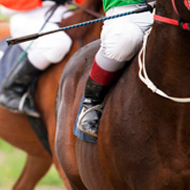
FEI move follows "discussions" about time it takes to bring prosecutions
The international governing body for Olympic equestrian sports, the Federation Equestre International (FEI) has issued guidance on its own anti-doping procedures.
The FEI said that in light of "recent discussions in the equestrian community" about the length of time taken to bring about prosecutions, it was "keen to clarify its procedures."
Secretary general Ingmar De Vos said: “It is the FEI’s role to ensure the full integrity of competition and fair play, while at the same time ensuring that the rights of the athlete are fully protected.
“As an international governing body, the FEI cannot allow that athletes would ever be condemned or sanctioned without having the proper opportunities to defend themselves.
"It is of course regrettable, on every level, whenever there is a positive finding, but the FEI has to follow due process in the interest of all parties involved.”
The FEI said that a positive doping finding is only the start of the process. It then has to prove to a tribunal, that there has been a violation of the Equine Anti-Doping and Controlled Medication Regulations (EADCMR).
A provisional suspension may be imposed against the person responsible, but that person can then apply for that suspension to be lifted at a preliminary hearing.
The person responsible has the right to contest the positive finding. They can challenge the sample collection and analysis procedures. They also has the right to provide an explanation for the presence of the prohibited substance in order to reduce or eliminate the applicable sanction.
It is only when the tribunal confirms in its final decision that there is a rule violation, that the automatic disqualification from competition and other sanctions can be applied.
The FEI is a signatory to the World Anti-Doping Agency code and principles, which include the right to a fair hearing. All parties involved have to be given time to prepare their submissions in order to properly defend themselves.



 The RCVS has announced a new version of its 1CPD mobile app, with enhanced features for veterinary surgeons and veterinary nurses to record their continuing professional development.
The RCVS has announced a new version of its 1CPD mobile app, with enhanced features for veterinary surgeons and veterinary nurses to record their continuing professional development.